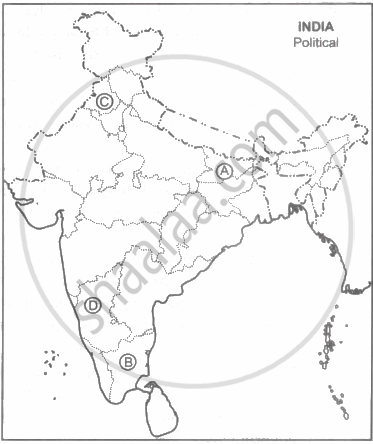Advertisements
Advertisements
Evaluate the relationship between India and Pakistan with the help of examples.
Concept: India-Pakistan Conflicts
The main objective of United Nations is to ______.
Concept: Evolution of the UN
Assertion (A): The United Nations is expected to cope better with the Unipollar World.
Reason (R): After the disintegration of Soviet Union many new countries joined the United Nations.
Concept: The UN in a Unipolar World
Explain, any four criteria proposed for new permanent and non-permanent members of the UN Security Council.
Concept: Reform of Structures and Processes
Explain any two functions of International Labour Organisation (ILO).
Concept: Rise of New International Actors - New International Economic Organisations, Ngos
Explain any four components of India’s security strategy.
Concept: India’s Security Strategy
Which one of the following is a concern under Traditional Security?
Concept: Traditional Notions: External
Explain terrorism as a new source of threat to the security with the help of any two examples.
Concept: New Sources of Threats
Which of the following resources is not a global common?
Concept: The Protection of Global Commons
"Development mostly causes degradation of environment." Justify the statement referring to two environmental movements.
Concept: Environment Movements: One Or Many?
______ means the progress that meets the needs of the present generation without compromising the need of future generation.
Concept: Environmental Concerns in Global Politics
Evaluate any three benefits of globalization.
Concept: Globalisation
Evaluate any three effects of globalization on the role of the state in developing countries.
Concept: India and Resistance to Globalisation
Analyse that globalisation is about worldwide inter-connectedness.
Concept: Globalisation
Evaluate the role of technology in globalisation.
Concept: India and Globalisation
"Globalisation is the outcome of developed technology." Support the statement with two examples.
Concept: Causes of Globalisation
Identify the main reason behind the investments of MNCs in developing countries.
Concept: Economic Consequences
Read the passage given below carefully and answer the questions that follow:
| Globalisation as a concept fundamentally deals with flows. These flows could be of various kinds - ideas moving from one part of the world to another, capital shunted between two or more places, commodities being traded across borders and people moving in search of better livelihoods to different parts of the world. The crucial element is the ‘worldwide interconnectedness’ that is created and sustained as a consequence of these constant flows. |
- ‘Worldwide interconnectedness’ is also known as ______.
- Globalisation
- Liberalisation
- Socialisation
- Privatisation
- Dimensions of globalisation are ______.
- political, social and spiritual
- social, economic and geographical
- political, economic and environmental
- political, social and economic
- Which among the following increases economic activities?
- Decline in employment
- Increase m the index of poverty
- Strong global economic growth
- Great decline in the trade
- Which one of the following is an impact of globalisation?
- The power of the states has increased.
- New trade barriers have been imposed.
- Choice of the customer has increased.
- It has given a boost to local industries.
Concept: Globalisation
Which one of the following is a princely state of India that initially resisted joining the Indian Union?
Concept: Integration of Princely States
In the given political map of India, four states have been marked as A, B, C, and D. Identify these states on the basis of the information given below and write their correct names in your answer book along with the respective serial number of the information used and the concerned alphabet as per the format that follows:

- The state to which Raj Kumari Amrit Kaur, Health Minister in Nehru's Cabinet, belonged.
- The state to which former Congress President. S. Nijalingappa, belonged.
- The state where Karpoori Thakur was the Chief Minister.
- The State to which the political party DMK belongs.
| S. No. of the Information used | Concerned alphabet | Name of the State |
| (i) | ______ | ______ |
| (ii) | ______ | ______ |
| (iii) | ______ | ______ |
| (iv) | ______ | ______ |
Concept: Nehru's Approach to Nation-building
